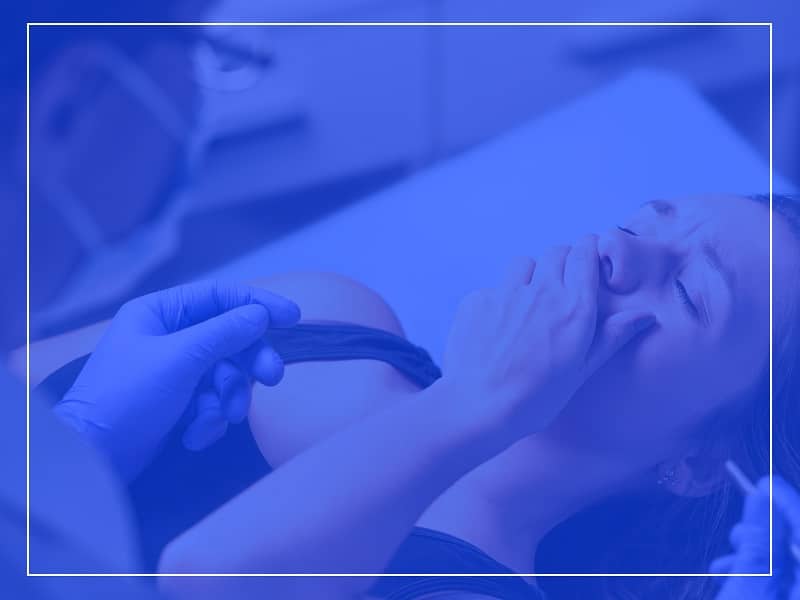Dental Malpractice
Protecting Your Rights When You Suffer Substandard Care
Bizzieri Law Offices is a reputable personal injury law firm in Chicago. We handle a variety of injury cases, including dental malpractice, which occurs when a dental provider fails to properly diagnose or treat an oral health condition, resulting in significant injury or death.
Dental malpractice in Chicago and surrounding areas occurs when a dental provider or facility falls below what we consider a reasonable standard of care. When there is a substandard facility or provider who is not competent and knowledgeable, it is not uncommon to see accidents that lead to injury. Each case of dental malpractice is unique and needs to be handled by a legal professional who is familiar with the process to help determine if you have viable grounds for a lawsuit.
As a dental patient, you have the right to expect a reasonable level of care when entering a dental facility. When accidents and life-changing injuries happen, they can alter the course of your future and result in substantial loss of income and quality of life.
LEARN HOW WE CAN ASSIST WITH YOUR CASE
If you or someone you love has suffered irreversible damage or any other harm due to the negligence of a dental professional, you may have a viable claim for compensation. Jim Bizzieri of Bizzieri Law Offices has handled these types of cases and is experienced in the field. Schedule a free consultation by calling 773-881-9000 today.
Practice Areas


Employment Law

Legal Malpractice
Some Things You Should Know About Dental Malpractice
Understanding Dental Malpractice
- Dental malpractice can occur in various forms, including misdiagnosis, surgical errors, and failure to obtain informed consent.
- Dental malpractice cases often involve complex dental concepts, making expert testimony essential.
- The statute of limitations for dental malpractice claims in Illinois is two years from the date of the incident or discovery of the injury.
Recognizing Dental Negligence
- Dental negligence can lead to permanent damage, including tooth loss, nerve damage, and infection.
- Identifying patterns of negligence can help establish a systemic issue and strengthen your case.
- Documentation of the incident, including photos and records, can help establish a strong foundation for your claim.
Your Rights and Options
- You have the right to seek compensation for damages, including medical expenses, lost wages, and pain and suffering.
- You may be eligible for punitive damages if the dentist’s actions were reckless or intentional.
- You have the right to choose your own dentist and seek a second opinion.
- You may be eligible for compensation for non-economic damages, including emotional distress and loss of enjoyment of life.
Dental Malpractice FAQ: Click on the Frequently Asked Questions Below to See Our Response
What are some common types of dental malpractice?
- Misdiagnosis or delayed diagnosis: Failure to properly diagnose dental conditions, such as cavities, gum disease, or oral cancer, can lead to delayed treatment and worsening of the condition.
- Surgical errors: Errors during dental surgery, such as nerve damage, tooth loss, or infection, can result in permanent damage and require additional treatment.
- Failure to obtain informed consent: Dentists must obtain informed consent before performing treatment, including disclosing risks, benefits, and alternative options. Failure to do so can result in liability.
- Medication errors: Errors in prescribing or administering medication, such as allergic reactions or overdoses, can have serious consequences.
- Failure to properly sterilize equipment: Failure to follow proper sterilization protocols can lead to the transmission of diseases, such as HIV or hepatitis.
Can I file a dental malpractice claim for a cosmetic dentistry procedure gone wrong?
- Botched veneers or crowns: Improperly fitted or installed veneers or crowns can lead to tooth damage, pain, and discomfort.
- Incorrect implant placement: Improper placement of dental implants can lead to nerve damage, infection, or failure of the implant.
- Nerve damage from injectable fillers: Improper use of injectable fillers can lead to nerve damage, pain, and numbness.
How do I know if I have a viable dental malpractice claim?
- Severity of injury: Have you suffered significant harm or injury due to the dentist’s actions?
- Deviation from standard of care: Did the dentist deviate from the accepted standard of care in the dental community?
- Causation: Was the injury caused by the dentist’s actions or inaction?
- Damages: Have you suffered economic or non-economic damages, such as medical expenses, lost wages, or pain and suffering?
What damages can I recover in a dental malpractice lawsuit?
- Medical expenses: Past and future medical expenses related to the injury, including additional dental treatment or surgery.
- Lost wages: Past and future lost wages due to the injury, including time missed from work or reduced earning capacity.
- Pain and suffering: Compensation for physical pain, discomfort, and emotional distress.
- Emotional distress: Compensation for anxiety, depression, or other emotional harm.
- Loss of enjoyment of life: Compensation for reduced quality of life or inability to enjoy activities due to the injury.
- Punitive damages: In cases of reckless or intentional conduct, punitive damages may be awarded to punish the dentist and deter future misconduct.
How long do I have to file a dental malpractice claim in Illinois?
- Discovery rule: If you did not discover the injury immediately, the two-year clock starts ticking from the date of discovery.
- Continuous treatment doctrine: If you continued to receive treatment from the same dentist, the two-year clock may be extended.
- Minors: If the victim is a minor, the statute of limitations may be extended until they turn 18.
- Notice of intent: In some cases, you may need to provide a notice of intent to file a claim before actually filing the lawsuit.
CALL A LAWYER WHO WILL CALL YOU BACK:
773.881.9000












